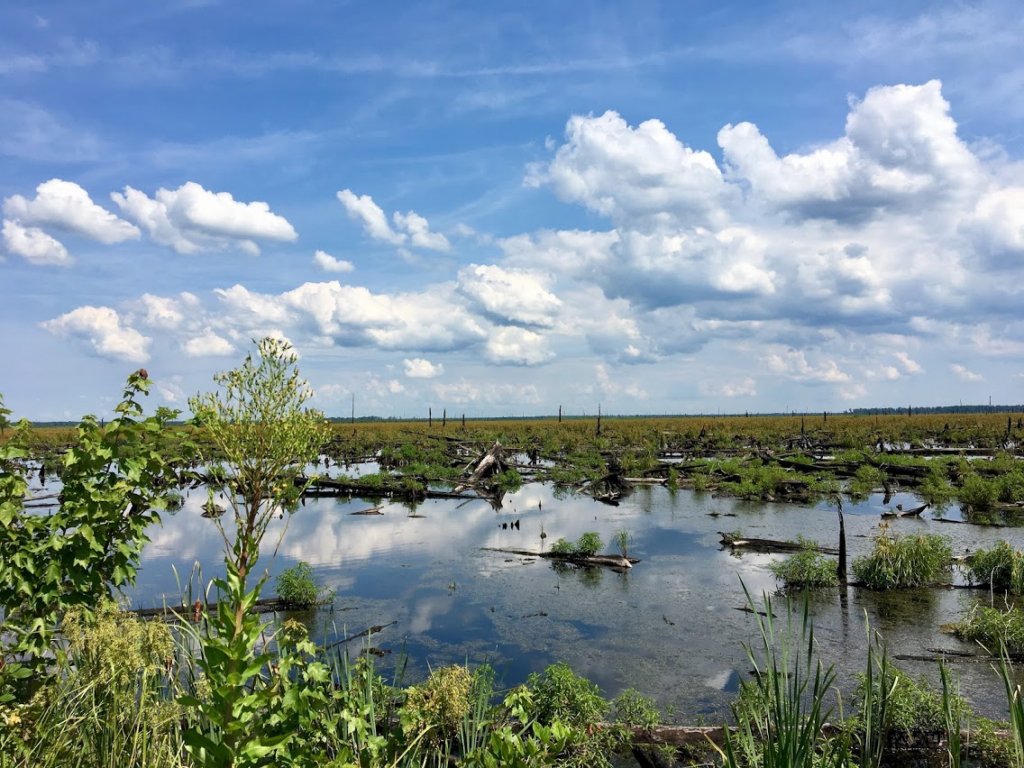
Virginia CRS Workgroup
Introduction
The Community Rating System (CRS) is a voluntary, incentive-based FEMA program that encourages local governments to implement flood risk reduction strategies, offering discounted annual flood insurance premiums in return. Through the CRS, localities can earn points by adopting various floodplain management activities. The more points, the greater the annual savings for flood insurance policyholders.
These point-earning activities are categorized into four main areas:
Public Information (activities that educate the public about flood risks and safety measures)
Mapping and Regulations (activities that develop and maintain accurate flood maps; activities that protect natural resources; activities that reduce flooding to buildings)
Flood Damage Reduction (activities that reduce flood damage, like building flood walls)
Warning and Response (activities that establish systems for effective flood warnings and emergency response)
Our goal is to support localities in adopting adaptation practices that most effectively enhance the health, safety, and well-being of Virginia residents, while also enabling them to pursue adaptation measures that maximize flood insurance discounts under federal law.
Workgroup History
Established in 2010 as the “Hampton Roads Regional CRS Workgroup,” the Virginia CRS Workgroup began with only local government staff participants. It later expanded to include staff from the Virginia Department of Conservation and Recreation and representatives from the Virginia Coastal Policy Center at William & Mary Law School. The 2012 Biggert-Waters Flood Insurance Reform Act, which mandated premium increases for flood insurance policyholders, significantly accelerated the group's growth. This growth was further fueled by the Homeowner Flood Insurance Affordability Act (HFIAA) of 2014, also known as Grimm-Waters, which aimed to address affordability concerns raised by the earlier reforms.
Today, the Virginia CRS Workgroup participation is state-wide, including representatives from a diverse array of local governments, state agencies, regional planning district commissions, private consulting firms, academic institutions, nonprofit organizations, and other flood mitigation professionals.
Participation in the group is driven by the need to manage the rising cost of flood insurance premiums while simultaneously addressing the impacts of flooding, sea level rise, and increased precipitation.
Meetings
Meetings often include informational presentations and group discussions to transfer knowledge and troubleshoot difficult flood risk issues. Communities that do not participate in the CRS program often attend these meetings to ask questions and learn from the discussions and presentations as they contemplate joining the program. The Workgroup welcomes participation from private and academic sectors interested in learning about the National Flood Insurance Program, the Community Rating System, hazard mitigation, and floodplain management.
The CRS Workgroup meets bi-monthly at 700 Town Center Drive, Newport News, Virginia. The regular meeting location is the James Room on the first floor, with occasional meetings held in the Warwick Room, also on the first floor. Meetings are scheduled from 10 AM to Noon.
All are welcome to attend, and no prior registration or notice is required. We strive to obtain Certified Floodplain Manager (CFM) credits for each meeting, though credits are not guaranteed.
Discounts
CRS participating communities start at Class 9, receiving a 5% annual premium discount, and earn greater discounts by improving their rating. Every increase in class rating results in a 5% increase. The highest class is a Class 1, which offers a 45% discount for policyholders.
As of April 1st, 2022, all flood insurance policyholders whose structures are in compliance are eligible for full premium CRS discounts, regardless of location.
Credit for Open Spaces
Wetlands Watch works with localities to ensure that they are receiving the maximum amount of credit for their conserved and protected lands in high risk flood zones. The resulting annual discounts in NFIP premiums both rewards localities for adopting nature-based practices that improve the health, safety, and wellbeing of their community members, and provides an incentive for keeping high risk lands free from unwise developments.
We also work with individual localities to provide a comprehensive open space review for CRS credits. In the last decade, we have provided comprehensive open space reviews for the City of Hampton, James City County, and Gloucester County.
Federal Recognition of CRS Credits Established for VA’s
Chesapeake Bay Preservation Act and the Tidal Wetlands Act
We advocated vigorously for the inclusion of the development restrictions, as outlined in Virginia’s Tidal Wetlands Act and Chesapeake Bay Preservation Act, within the framework of the Community Rating System (CRS). In 2021, FEMA formally acknowledged these activities, enabling localities that effectively implement these essential state conservation measures to receive CRS credits. This federal recognition ensures that participating CRS localities benefit from the financial incentive of annual discounts on flood insurance premiums, as a direct result of their commitment to these critical environmental regulations.
Leadership
The workgroup is chaired by Mary-Carson Stiff, the Executive Director of Wetlands Watch. She is a 2013 graduate of William & Mary Law School, where she was in the first graduating class of the Virginia Coastal Policy Center. Her past work experience includes the VA Coastal Policy Center, Virginia Outdoors Foundation, Land Trust Alliance, Virginia Sea Grant, and Episcopal High School. She presently serves on the boards of the Virginia Land Conservation Foundation, the Virginia Coastal Resilience Technical Advisory Committee, and the Coastal Virginia Conservancy.


